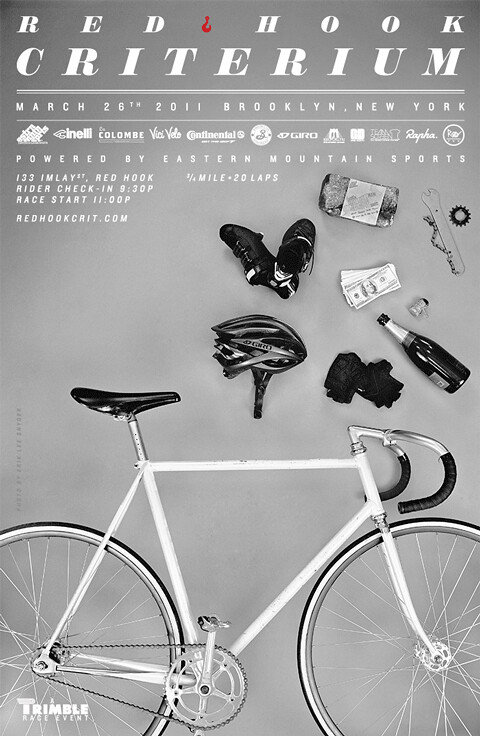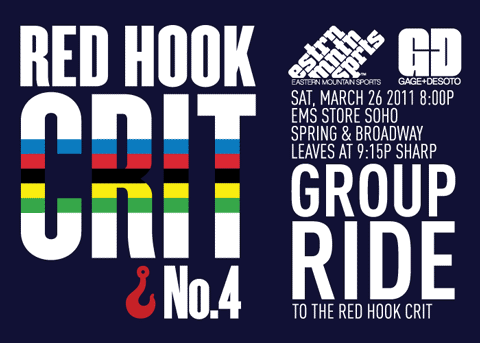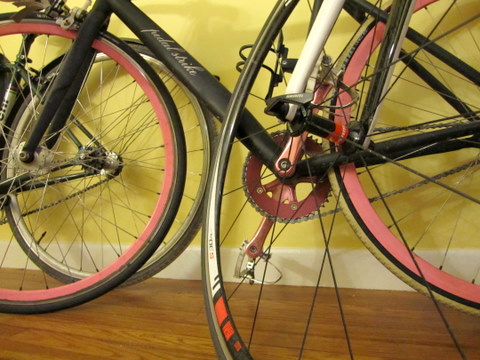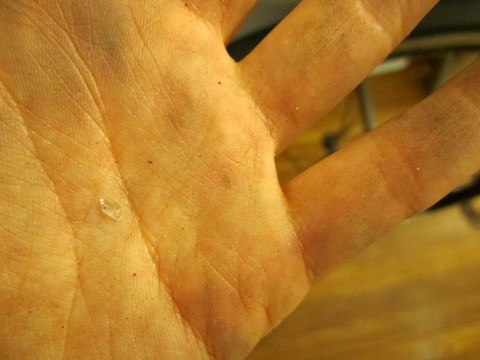A few nights ago, I woke up to uncomfortable stomach pain. In the hour that followed, I emptied the contents of my stomach into the toilet, hurling out half-digested food and bile with the gusto I usually reserve for rides or make-out sessions. Crouching in front of the toilet with a bathmat underneath my legs to pad my knees, it was the first time in my life that I have vomited in solitude.
I understand this admission risks leading to the assumption that my life thus far has been unusually coddled and sheltered. Such is not the case; my public vomiting has always been a thing of choice. Like a shameless cry for help and pity that was not so much aural as visual and olfactory, I have thrown up the remnants of soup onto the hallway floor, mussels and oysters into plastic bags in the kitchen, and [the only time I made it to a porcelin receptacle] a mixture of nachos and Grey Goose into my sister’s toilet. Each time, there was someone within vomiting earshot. Someone who came running and either held my hair, the plastic bag, or offered to clean up the mess. I never flinched [even in hindsight] at how readily I accepted their offers of help. In fact, I found comfort in this, and could not understand why, when my sister threw up in her own room one day, she refused to accept my offer to clean it up, going so far as to tinge her rejection with a threat of physical harm should I so much as even try.
That night I threw up alone, through sweaty nausea, I wished for once that I had a room mate. This was a preference that, under normal circumstances, would have been immediately dismissed. I view living alone as not only a necessity but a sign that I have grown out of the phase where lack of sufficient income forces one to make the less than optimal choice to live with a person one is not simultaneously sleeping with. In school, I justified my comparably indulgent living situation as critical for academic success [or, failing that, at least an academically optimal environment]. At present, lacking any income and thereby opening myself up to be labeled as a hypocrite, I rationalize my aversion to sharing common living areas with other people as solitude suffered for the greater good. A benevolent, selfless act undertaken to assure that any potential room mates will never be subject to my slovenliness, bad cooking, or terrible music; and that I in turn, will never have to execute passive aggressive countermeasures based on suspicions that a stranger is partaking of my condiments.

This self-awareness of my own flaws - however limited - also extends to my riding. Fully conscious that I pose a significant danger to those around me due to my lack of bike handling skills, I primarily ride alone. Despite how comfortable I may be with my solitary riding, when people hear this, they feel compelled to comment. “You’re never going to get better riding alone,” some say, as they look me up and down, expecting me to rise to the challenge. Others misinterpret the information as fishing for an invitation: “I’ll totally ride with you! We need to ride together,” they’ll say. The philathropic offers are appreciated, but I’m also blessed with friends who don’t tend to follow up. They leave me to ride alone, pedaling towards that day when I might be able to sit in calmly without the fear that I will most certainly kill the person riding next to me.
“But you always say how much you hate riding alone,” Mike says. And to his credit, I have at times expressed a desire to have company that is more tangible than Kanye’s voice. Fortunately, Mike actively attracts group rides, so I get to hear all about them. “We were supposed to leave at 9:30, but so-and-so was running 15 minutes late. Then he really wanted coffee so we ended up leaving around 10:15.” Call me an ass but even the thought of hanging around an extra 45 minutes - precious extra pillow time when you’re talking about a Sunday morning - chafes harder than wearing men’s chamois shorts. I love my friends, but few would be worthy of such cleat-tapping tardiness. “And then some of the guys were just hammering,” Mike might add, in between complaining about the pain still running around his legs. I shake my head in pity, my relaxing solo ride challenging, but still safely within the confines of “fun.”

The irony is that recently, these solitary rides are catching up with me. My lone figure seems to invite invitation to join a paceline more times than I’m actually comfortable with, demands to stay on a wheel or take a pull to close a gap inevitably follow. Tests to see how well I can hold a line ensue, as I secretly thank my non-parabolic rollers. My visions of casual riding in the little ring go the way of Cavendish’s chances of a win in Milano-San Remo post-crash as I drag a stranger up to his friends or vice versa. Blame it on too much Kanye, or too easily bending to perceived flattery [“do they really think I can keep up?”]; a feeling of perverse guilt and obligation consistently keeps me from waving them off in a polite “no, thank you.” “Riding alone,” is quickly becoming “riding alone until someone decides to pace me, drag me a few miles on their group ride, or otherwise cause me unnecessary pain.”
With my history of relative reclusiveness, it wouldn’t be a stretch to assume that I resent these charitable strangers. But much like how the stark loneliness of vomiting in solitude only comes into focus after a lifetime of public retching, to be caught up in a group ride that is not your own, then dragged along for a portion of it, makes the solo ride a peculiar anomaly. An activity that one might not pursue so adamantly after a few moments of proximity to other, real-life cyclists. I think about this, sometimes, as I pinch my tires and put on my shoes, coiling my right earbud around my helmet strap. There are questioning thoughts about tardy friends who like to paceline aggressively and all the group rides I’m not trying. I try to want those things as I swing my leg over my saddle, heading out alone, wondering who I’ll meet today.





